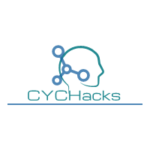Ever since bitcoin has been in existence, many businesses have readily accepted it as a legitimate method of payment all over the world. Following closely following Bitcoin’s ascent as original blockchain innovation, ventures are starting to move their blockchain projects into creation. To know more about blockchain networks and cryptocurrency just visit homepage and get your cryptocurrency networks going.
And despite it being so popular a lot of people still don’t know that there are four different types of blockchain. Namely, public blockchains, private blockchains, consortium blockchains, and hybrid blockchains, and every last one of these stages has its advantages, disadvantages, and optimal employment.
Table of Contents
What is a blockchain?
The first thing that comes to mind is What is blockchain? Blockchains store information related to monetary transactions, product tracking, and other data. For example, they could help businesses track food products from their shipment to their final delivery, providing traceability and a way to combat foodborne illnesses. In addition, the distributed nature of blockchains also reduces the chance of network downtime since each device has a copy of the data.
Blockchains use a decentralized network of computers and other devices to keep track of information. Each block contains a specific amount of data and is linked chronologically. One way to think of a blockchain is like a train. Each carriage can hold a certain amount of data, and each block has a timestamp that is vital for transactions and supply chain data.
A blockchain can be public or private, and different kinds are suited for different uses. Public blockchains, such as Bitcoin and Ethereum, are open-source and accessible to the public. A public blockchain is safer because more people are involved in it and therefore, it is more secure. Furthermore, a private blockchain is limited in participation and is often used by corporations and other entities. Regardless of which type you choose, blockchains are an excellent solution for storing sensitive information and can be highly secure.
Public blockchain
The principal sort of blockchain technology is the public blockchain. This is the place where digital currency like Bitcoin began and assisted with advocating dispersed record innovation (DLT). It eliminates the issues that accompany centralization, including less security and straightforwardness.
DLT doesn’t store data in any one spot, but rather circulates it across a distributed organization. Its decentralized nature requires some strategy for checking the genuineness of information. One of the benefits of public blockchains is that they are autonomous of associations, so if the association that began it stops to exist the public blockchain can in any case run, as long as there are PCs associated with it.
However, the organization can be moderate, and organizations can’t confine access or use. On the off chance that programmers acquire 51% or a greater amount of the registering force of a public blockchain network, they can singularly adjust it.
Also Read:
Private blockchain
A blockchain network that works in a prohibitive climate like a closed organization, or that is heavily influenced by a solitary element, is a private blockchain. While it works as a public blockchain network as it utilizes distributed associations and decentralization, this kind of blockchain is of a much more limited size. Rather than just anybody having the option to join and give figuring power, private blockchains ordinarily are worked on a little organization inside an organization or association.
Since they’re restricted in size, private blockchains can be exceptionally quick and can deal with exchanges substantially more rapidly than public blockchains. It’s hard to completely accomplish trust in the data since unified hubs figure out what is legitimate. The modest number of hubs can likewise mean less security. If a couple of hubs denounce any authority, the agreement strategy can be compromised.
Hybrid Blockchain
Some of the time, associations will need the smartest possible solution, and they’ll utilize mixture blockchain, a sort of blockchain innovation that joins components of both private and public blockchain. It allows associations to set up a private, consent-based framework close to a public permissionless framework, permitting them to control who can get explicit information put away in the blockchain, and what information will be opened up freely.
At the point when a client joins a cross hybrid blockchain, they have full admittance to the organization. The client’s character is shielded from different clients, except if they participate in an exchange. Then, at that point, their personality is uncovered by the next party.
This blockchain secures protection yet takes into consideration correspondence with outsiders. Exchanges are modest and quick, and it offers preferred adaptability over a public blockchain network. However, the blockchain isn’t completely transparent because of the information here being shielded and therefore upgrading can be a challenge.
Consortium blockchain
In a consortium blockchain, the agreement methodology is constrained by preset hubs. It has a validator hub that starts, gets and approves exchanges. Part hubs can get or start exchanges. This blockchain will in general be safer, adaptable and effective than a public blockchain network. Like private and half-breed blockchain, it likewise offers access controls.
However, it is less straightforward than public blockchain. It can in any case be compromised if a part hub is penetrated, the blockchain’s guidelines can hinder the organization’s usefulness.
Conclusion
And now that the four types of blockchain are clear to you, you must know that blockchain already is boosting popularity in the market and is quickly getting support from multiple enterprises. All of these types of blockchains have a potential application that can further develop trust and straightforwardness and make a superior record of exchanges.
Alex is fascinated with “understanding” people. It’s actually what drives everything he does. He believes in a thoughtful exploration of how you shape your thoughts, experience of the world.

